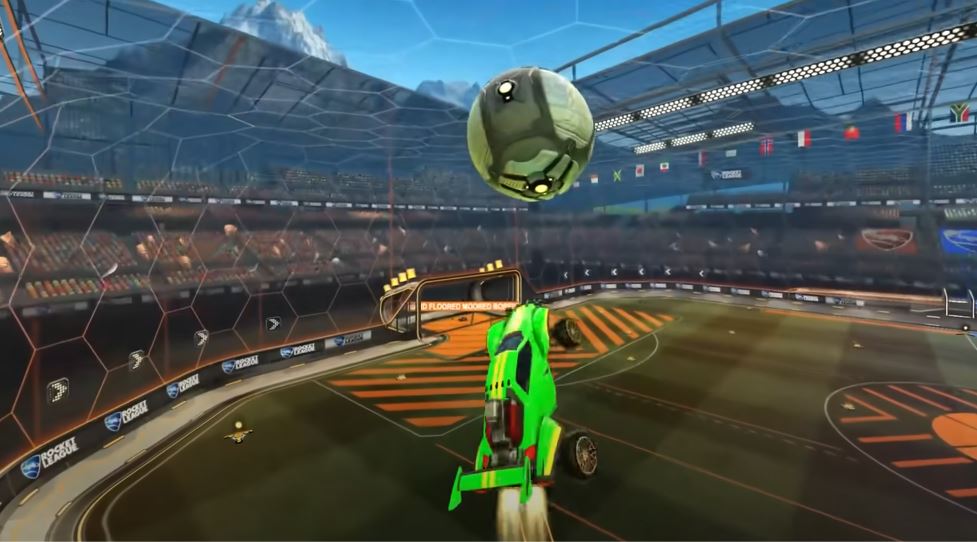In Rocket League, working well with your teammates is crucial for success. Even if you have great individual skills, you won't climb the ranks very far without understanding how to coordinate and collaborate with your teammates effectively. Here are some tips on how to utilize your teammates properly in Rocket League matches.
Communicate Your Intentions
One of the most important things you can do is communicate your intentions to your teammates through quick chat and voice chat if available. Calling out when you are going for kickoff, centering the ball, or rotating back to defense lets your teammates position themselves accordingly. Saying "I got it!" on kickoff prevents awkward double commits. Calling "Centering!" lets your teammate know you are passing them the ball. Communicating "Defending" or "Go for it!" makes your rotations smoother.
Pay Attention to Your Teammates' Positions
In addition to communicating your own intentions, pay close attention to where your teammates are positioned on the field. If your teammate is already upfield challenging the ball, avoid moving up and double committing. Check behind you before rotating back to see if a teammate is already waiting in defense. Knowing your teammates' locations will help you position yourself in the most useful spot.
Make Smart Passes
Rocket League revolves heavily around passing plays. However, you have to be smart about your passes. Don't just blindly center the ball and hope your teammate can do something with it. Before passing, check that your teammate is actually ready to receive the pass. Make your passes to open spaces where it will be easy for them to follow up. Lead your teammate with the pass and put it on a path ahead of them. Well-executed passes to prepared teammates lead to great scoring chances.
Cover Your Teammates' Whiffs
No one is perfect, and even at the highest levels, whiffs and mistakes happen. When your teammate misses on a challenge or touch, be ready to swoop in and cover. Having proper rotational spacing between teammates gives you time to react when things don't go as planned. Rather than getting frustrated at mistakes, expect them to happen and be in a position to provide backup.
Trust Your Teammates
An important mindset that leads to good teamplay is trusting your teammates. Don't assume your teammates are incompetent and try to do everything yourself. Have confidence in their abilities. Allow them space to control the ball and make plays. Respect your teammates' intentions when they call for the ball or communicate that they have a touch. Trusting your teammates makes you work together, not against each other.
Avoid Double Commits
One of the most frustrating things that leads to goals against is when both teammates go for the ball simultaneously and double commit. This often leads to an open net for your opponents. Be mindful of when your teammate is already challenging the ball and avoid moving in too. Similarly, if your teammate has called for the ball, allow them space to play it rather than taking it yourself.
Don't Crowd the Play
Even if you don't directly double commit, crowding your teammate can be detrimental. Having two players too close together makes you predictable for the defense and can make it hard to avoid collisions. Give your teammate ample space when they have possession. Don't drive right behind them looking for a pass. Spread out the field and give them room to work.
Rotate Properly
Rotating well is a fundamental key to consistent and effective team play. Making sure only one teammate is challenging at a time while others are ready for support and defense prevents many of the issues mentioned already like double commits and crowding. Learning proper rotational habits, rotations spacing, and rotation timing will improve your teamplay immensely.
Complement Your Teammates' Strengths
Everyone has different skillsets and playstyles. Pay attention to what your teammates excel at. If one thrives at shooting, enable them with good passes. If one dominates the midfield, feed them the ball. If one is an anchoring defensive wizard, trust them to hold down the fort. Play to your teammates' strengths rather than expectations of how you think they should play.
Adapt Your Game
Similarly, pay attention to what your teammates struggle with. If they whiff on aerials, avoid going for risky aerial passes and keep the ball grounded. If they have poor challenges, be ready to provide support. Adapting your own play to account for your teammates' weaknesses and complement their strengths goes a long way towards working together successfully.
Maintain Positivity
Finally, maintaining a positive attitude even when things go wrong makes for better team chemistry. Keep communications focused on strategy and coordination. Offer words of encouragement when teammates miss. And don't blame teammates for losses – remember you win and lose as a team. Staying positive toward your teammates keeps morale high and makes working together easier.
Putting these tips and strategies into practice will have you working better with teammates and ranking up the tiers. Remember that consistency, communication, and chemistry are key when it comes to successful teamplay. Focus on enabling your teammates to succeed and you'll find greater success yourself. Now get out there, collaborate well, and reach for the top ranks together!
